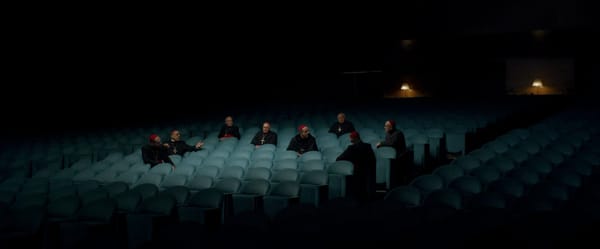Is chasing our dreams selfish?
Amy Adams's West End debut in The Glass Menagerie

"Go, then! Go to the moon — you selfish dreamer!"
Fifteen minutes before the lights go down, before the audience has even settled in their seats, an actor walks on stage.
He wanders around, adjusts a few props here and there, and lights a cigarette. He’s eventually joined by the whole cast who greet each other and have inaudible chats amongst themselves.
You’re unsure whether they’re in character or not.
This is how Jeremy Herrin’s West End production of The Glass Menagerie begins. Or rather, this is how it begins before it actually begins.

I didn’t expect a Tennessee Williams play I’d never heard of to be my first experience of London’s West End. (I’m more of a musicals type of person myself). But then again, I didn’t expect my very favourite actor to make her West End debut in the same year I find myself living in England.
There’s no easier way to get me to watch something than to say, “Amy Adams is in it”, and The Glass Menagerie was no exception.
As soon as the narrator started setting the scene, I was sold. Wouldn’t you be intrigued if a play began like this?:
Yes, I have tricks in my pocket, I have things up my sleeve. But I am the opposite of a stage magician. He gives you illusion that has the appearance of truth. I give you truth in the pleasant disguise of illusion.
The story, that’s said to be inspired by Tennessee Williams’s life, is a portrait of the Wingfield family living in the 1930s American South.
Each family member is desperate for a life beyond the confinement of their apartment: Tom writes poetry during his work breaks, and Amanda wishes for the arrival of a “gentleman caller” for her daughter. Meanwhile, Laura escapes into the imaginary world of her glass animal collection.
We see how the individual pursuit of these dreams becomes the reason for the family’s eventual undoing. And we’re left questioning whether it’s possible to escape an average existence and what the consequences of such an escape might be.
But before its rather sombre ending, the play challenges the idea that being average is unremarkable. There’s a moment when Laura holds her dearest glass ornament under candlelight and is in awe of its colourful shimmer. Yet when a significant part of it breaks off, leaving it less special than it was, we realise that its fall into ordinariness makes it no less able to shine.
If you’ve found value, joy, or comfort in The Kulturalist, consider clicking the button below to support my work. Your generosity keeps the words flowing. Thank you for being here!





